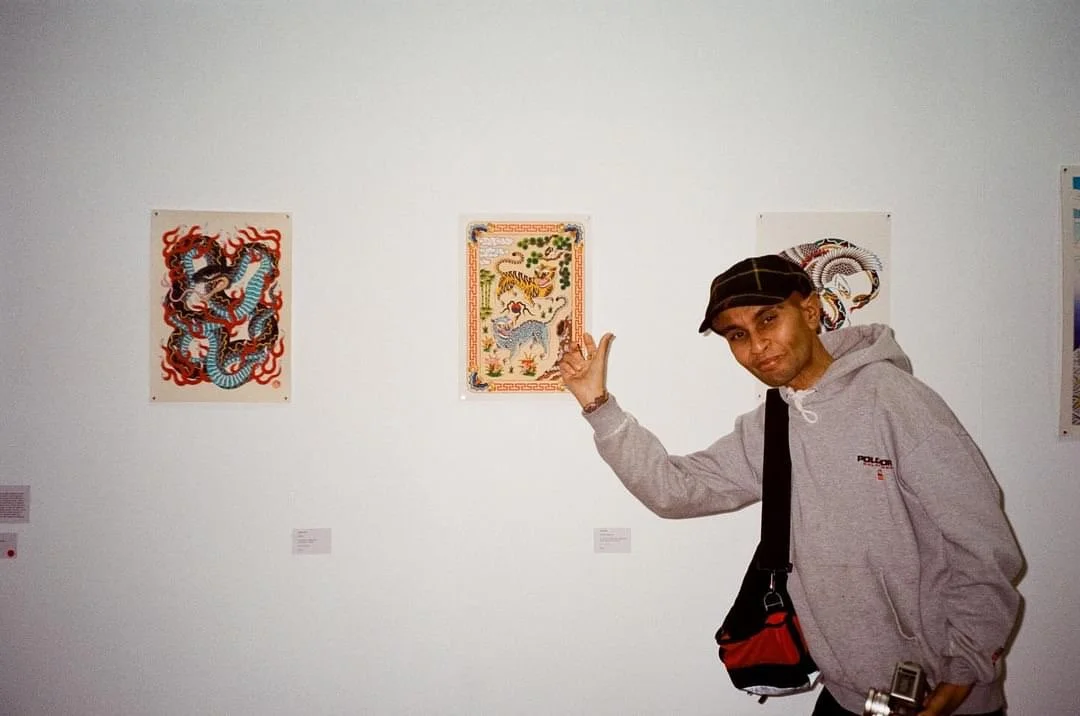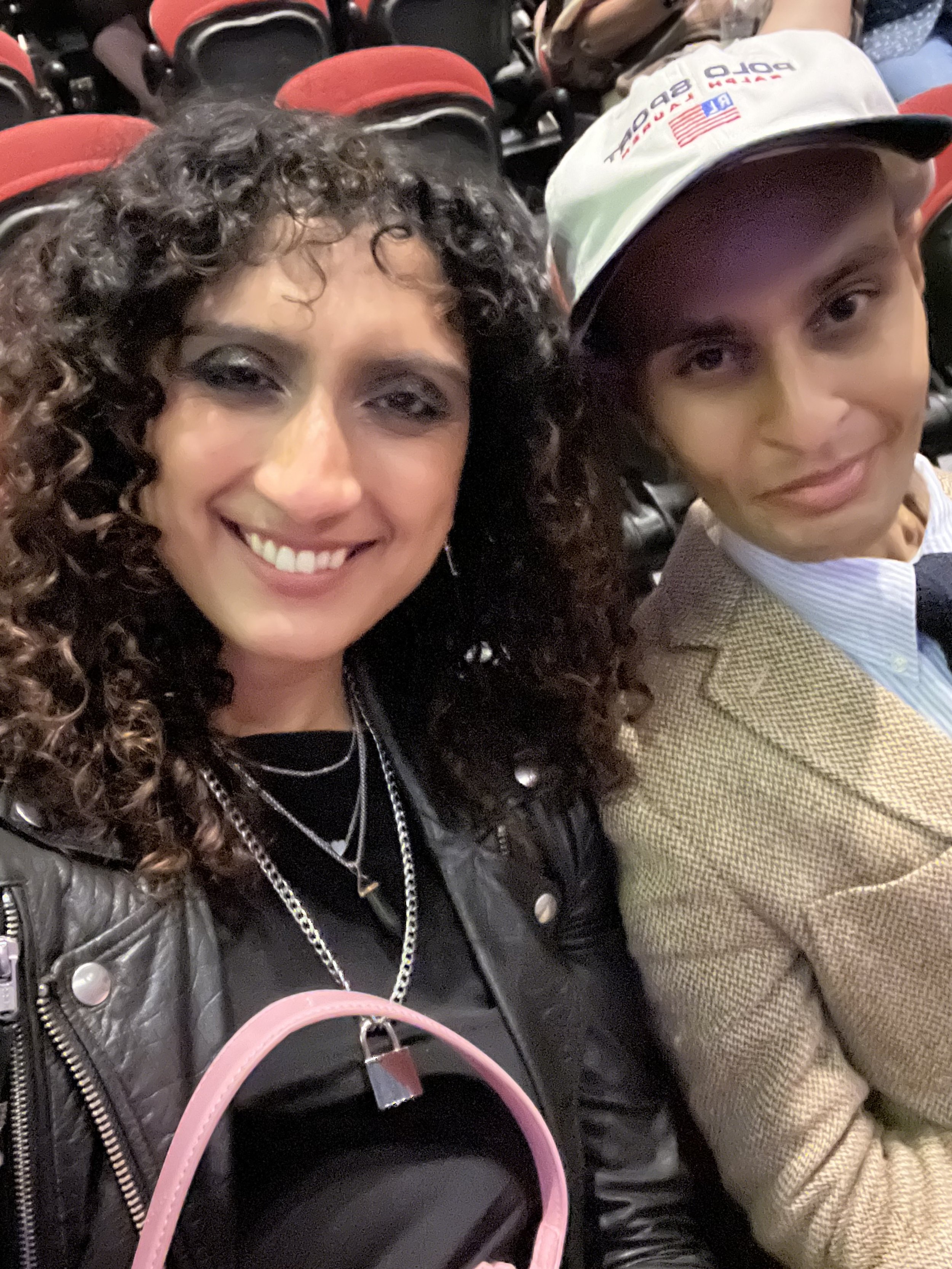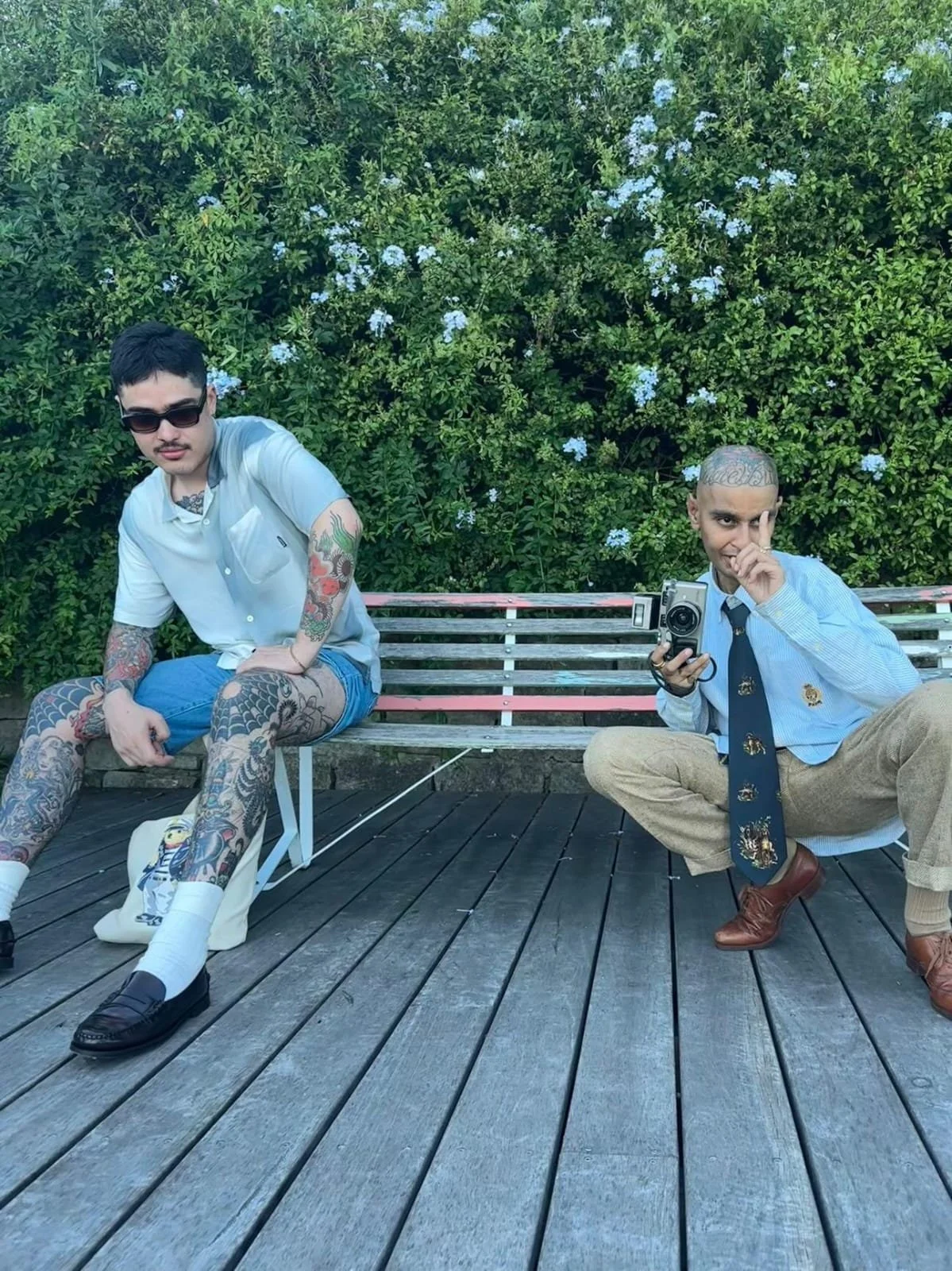On life, loss, and living
My core value is perseverance, and the person who taught me to live, breathe, and uphold it daily is my only sibling: my little brother, Tahmid Nurullah. Over the past few weeks, I have grieved his loss. And it really f*cking sucks.
Our last family photo, at the launch of Tahmid's final exhibition, 'Between Urgency and Leisure' at Penrith Regional Gallery. (Photo by Maja Baska)
To know me is to know I’m an older sister. It’s a core part of my identity. So, anyone I’ve had the privilege of managing in my career will attest to how my strongest leadership value is that of perseverance and that the person who taught me to live, breathe, and uphold it daily is my only sibling: my little brother, Tahmid Nurullah.
Over the past few weeks, I have grieved his loss. And it f*cking sucks.
Tahmid is the person who most strongly influenced the woman I am today; he is my burning sun from whom I gain all my light, strength, and energy. Every moment of joy, pain, celebration, and sorrow I’ve ever felt was an experience we shared together.
I have this tradition with all my new team members in their first week. We walk through the park and stop at a bench. I share my story, and invite them to share theirs. There’s an underlying motive - with the responsibility of being your new manager, I need you to know I’ve experienced hardship, but that it’s given me the gift of empathy and a no-holds-barred, ‘giving up isn’t a choice we make here’ approach to life and leadership.
Tahmid was born with end-stage renal failure and a grim prognosis from birth. He was on dialysis for the majority of his life. And yet, he lived a truly remarkable existence: a life that was more enriched, purposeful, and intentional than anyone I have ever known. He knew his time was limited so he made each moment and every relationship count.
A memorial mural painted by @riotsone and @jevans_tattoo in the days following Tahmid's passing
An accomplished analog photographer under the moniker @ladstreet, Tahmid first picked up a film camera simply as a means to capture a world he organically inhabited. Yet with such raw talent, it wasn't long before he was highly sought after as a uniquely skilled cultural documentarian: spreads published in Rolling Stone, exhibitions in some of the most notable galleries in Sydney and shooting groundbreaking campaigns for Nike. His body of work captured the essence of human emotion in a way only someone with an extraordinary gift for personal connection could.
He was a cultural icon (the man quite literally coined the term, ‘Halal Snack Pack’). In a world of ‘armchair activists’, Tahmid took an unrelenting, non-passive stance against all forms of injustice. He was a walking encyclopaedia of society, culture, politics, fashion, food, music, you name it. He had the most refined, sophisticated sense of style and forever remained, by far, the best-dressed person in the room.
To have his attention made you feel like the only person in a crowded place. And did he ever give it. Tahmid paid people attention wholly and deliberately, with unwavering eye contact and a phone forgotten in a pocket.
He truly loved with no limits, never hesitated to let people know just how much he valued them and the impact they contributed to the world we share. Something many of us now hold dear are Tahmid’s messages and, often, hand-written notes where he would express how much we meant to him without refrain.





This is the impact we’d all endeavour to leave behind in our mortal lives; to be someone who is so universally good that it influences everyone around us to be better, do better, contribute more and to leave a legacy of hope in the presence of darkness. But Tahmid actually did it.
I’ve never met anyone who avoided attention more, yet inevitably became the life of every party. Whenever he’d visit me for lunch in the office he’d insist on saying hello to my team (and I’d roll my eyes because they’d all stop to treat him like a celebrity and get distracted for 10 minutes). I was a 30-something divorcée who reliably had the world’s greatest +1 for any event, as long as it wasn't a dialysis day. Wherever we’d go, if I lost sight of him I’d hear the laughter of a crowd and find him at the centre of it.



He was witty, charming, passionate, sincere. He’d survived a stroke in March 2023 and yet, his intellect still fired on all cylinders (better than the majority of us on our most well-rested days). His physical body was flawed, his vital organs couldn’t function but his mind and his heart remained bulletproof.
Tahmid had the strength of a thousand armies in one pinkie fingernail. His illnesses were a footnote in the chapters of a life dedicated to empowering others against all odds. To say he treated others with kindness is a hyperbolic understatement to anyone who knew him. He was selfless, generous, warm, perceptive, and the easiest person to fervently adore.
At the launch of what would later be his final exhibition, Tahmid gave an artist's talk.
There was a moment when he spoke about the meaning of photographic representation for the underprivileged. The passion and intensity he spoke with was so palpable that when he took a second's pause, as he did during particularly affecting moments, there was a pin-drop silence in the room.
You could feel the entire audience holding its breath. Tahmid addressing an audience is the closest thing I’ve witnessed to watching a crowd collectively spellbound.
Hearing anyone speak about Tahmid makes him sound almost mythical. But the truth is, he was. Because I can’t tell you the number of people who pulled me aside at his funeral and subsequent memorial events to say, “your brother was the best man I’ll ever know”.
“I met him once and he had such an impact that I got on a flight the second I heard”.
“Your brother brought so much joy to my world.”
“Tahmid saved my life”.
“Your brother made me who I am”.
“He saw me in a way no one ever did.”
“We are all better for knowing him”.
It's nearly impossible to capture all of the poignant, beautiful words that have been shared, posted, and exchanged about Tahmid. There's a collective sentiment among them, which is a commitment to uphold his legacy and be inspired by the way he chose to live - the way he gave a stern middle-finger to his circumstances and saw nothing but love and beauty in a world that often denied it to him.
But his good friends in a wonderful band called SPEED phrased it in a way I can't quite top:
“...to know Tahmid was to be loved by him in all of his being. To know Tahmid was to love him and all that surrounds us.”
And, to know me is to know I am Tahmid’s older sister. What a remarkable privilege that is.
if tahmid’s story resonates with or inspires you, a beautiful way to honour him would be to consider donating to Purple House, an innovative Indigenous-run health service in Alice Springs.
Purple House operates 18 remote clinics and a mobile self-contained dialysis unit called the Purple Truck. they get Indigenous renal patients home on Country, confident they’ll survive the trip so family, cultural and community roots can remain strong.
















